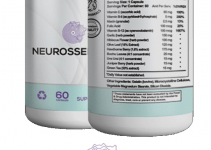In the United States, digestive issues are a major reason for clinic visits and hospitalization. Two similar conditions that are often difficult to manage in the conventional doctor’s office are Crohn’s disease and ulcerative colitis.
Inflammatory Bowel Disease in the United States
These conditions account for at least six million office visits a year and affect men and women equally. They involve ulcerative lesions throughout various parts of the digestive tract and may present symptoms like abdominal pain and watery or bloody diarrhea. These lesions are inflammatory in nature, with an autoimmune component.
The Cause of Inflammatory Bowel Disease
The ultimate cause of these conditions is unknown but current research points to the theory of an initial infection or food allergy that induces an inflammatory autoimmune reaction. Minute particles (antigens) of invading bacteria, viruses, or food, may resemble parts of the body and cause one’s immune system to attack cells of the digestive tract. This mistaken identity leads to cell death and ulcers along the small intestine and colon. Since these conditions often occur in specific ethnicities and run in families, a genetic component is also expected.
A Holistic Approach to Treating Ulcerative Colitis and Crohn’s Disease
The naturopathic integrated approach to managing these conditions varies from conventional protocols that rely on antibiotics, immune suppressive drugs, and rudimentary diet changes. Naturopathic medical strategies are holistic and involve:
- removing the offenders
- reducing inflammation
- supporting healing of damaged tissues
- addressing nutrient deficiencies due to impaired absorption
Herbs and Nutritional Supplements Crucial to Treatment of Inflammatory Bowel Disease
Naturopathic treatment involves removing possible offenders like food allergies. A common allergen, inducing gastrointestinal problems is the gliadin glycoprotein. This pesky molecule is found in gluten-containing grains like wheat.
Inflammation is reduced using herbal materials like turmeric (Curcuma longa) and Boswellia species. Tissues are supported to heal with incorporation of the amino acid glutamine, and the mucopolysaccharides of Aloe vera juice. Further employment of soothing and demulcent botanicals like marshmallow root (Althaea officinalis) and slippery elm bark (Ulmus fulva) are often quite helpful.
Impaired nutrient absorption may be addressed with gentle, absorbable forms of vitamins and minerals like sublingual vitamin B12 and ferrous bis-glycinate iron.
These strategies may be effective as the sole form of therapy or as adjunct support to conventional means. They offer extra tools with appropriate substantiation for the practitioner. However incorporated, these treatments should be supervised by a competent licensed health care professional that can monitors physical signs and lab work.



